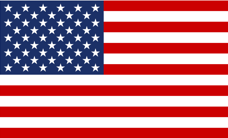If you’re thinking about installing a vinyl fence on your residential or commercial property, there’s probably quite a bit of information you’ve yet to research. Vinyl fencing can differ significantly from other fencing materials, like metal or wood, so it’s important to have a good handle on what you’ll be working with when you embark on a project like this. Read on for some of the FAQs we get about vinyl fencing, and you’ll feel all the more ready to start your project with confidence.
Are vinyl fences easy to take care of?
First of all, let’s talk about what vinyl fences are actually made out of: a polyvinyl chloride (PVC) resin. This plastic-like material allows for the fencing to be easily cleaned—gone are the days of repainting or re-staining wooden fences seemingly every year. Instead, you can now use a hose or a pressure washer once or twice a year and your fence will soon be looking as good as new.
Does vinyl fencing keep its color?
Many people worry about the potential for vinyl fences to lose their color over time (and that their color choices could be restricted in the first place). First off, thanks to advances in technology, vinyl fencing comes in more colors than you can imagine—you’re no longer limited to white or black. Second, another advantage of vinyl fences is that their PVC composition is inherently resistant to the sun’s UV rays, which means they’ll hold their color for decades.
Is vinyl fencing safe for children?
Metal and wood fencing can actually be quite hazardous for pets and small children. There’s all manner of screws and nails to watch out for, as well as splintering. A vinyl fence has a smooth and streamlined look that minimizes the risk of anything jagged hanging off of it.
Are vinyl fences suitable for animals?
Something that’s unique about vinyl, especially when compared to wood, is that the material also has no taste. While this means nothing to a human, it does mean that animals will not be tempted to chew on it. Additionally, they are great for those who keep horses, because the animals won’t be tempted to rub themselves on the perfectly smooth surface, whereas a rough wooden fence can be a great scratching destination for a huge animal that can easily damage your fencing.
Will vinyl fencing stand up to the weather?
Vinyl fencing is a surprisingly durable and strong material. If installed properly using high-quality materials, it can withstand hurricane-force winds. It can also stand up well to extended periods of dampness, because not only does the material not rot, but any mold or mildew that forms due to excess moisture can be easily hosed off, as we’ve already discussed.
Vinyl materials can be an inexpensive and durable solution to your fencing needs—get in touch with our team at Vinyl Professionals, Inc. to discuss your project with a qualified technician. We handle everything from vinyl fences to patios and gazebos, so give us a call today!

